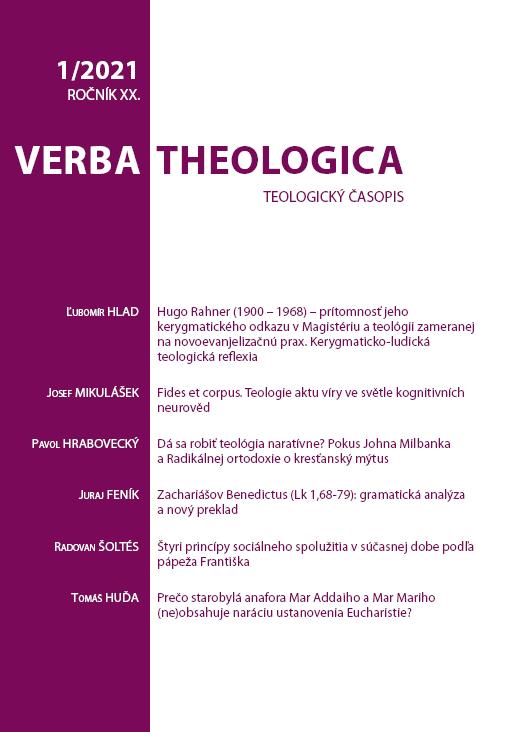Hugo Rahner (1900 – 1968) – prítomnosť jeho kerygmatického odkazu v Magistériu a teológii zameranej na novoevanjelizačnú prax. Kerygmaticko-ludická teologická reflexia
Hugo Rahner (1900 – 1968) – the presence of his kerygmatic legacy in the Magisterium and in theology for the praxis of new evangelization. Kerygmatic-ludic theological reflection
Author(s): Ľubomír HladSubject(s): Christian Theology and Religion, Theology and Religion
Published by: VERBUM - vydavateľstvo Katolíckej univerzity v Ružomberku
Keywords: kerygma; proclamation; evangelization; Magisterium; homo ludens; theologia cordis; theologia praedicationis; theologia ludens; prophetic
Summary/Abstract: The return to the proclamation based on early Christian kerygma, encouraged by the contemporary Magisterium, makes certain demands on theology, as the whole Christian formation - not only spiritual but also theological – “consists of entering more deeply into the kerygma”. In order to say that “nothing is more solid, profound, secure, meaningful and wisdom-filled than that initial proclamation”, the proclamation must be filled with the main contents of the kerygma and at the same time must be practiced in a kerygmatic way. The central contents of the kerygma, which is “God’s saving love”, is to be communicated joyfully, with encouragement, harmonious balance, in readiness for dialogue, friendship, patience and mercy. (Cf. Francis, Evangelii Gaudium, 165) What seems like a simple call for a turning point is comprehensively treated in the work of a German theologian, working mainly at the Faculty of Theology in Innsbruck, the father of the theological current “Kerygmatic Theology” – Hugo Rahner (1900 – 1968). This study is devoted to this original theological personality, but also to the presence of the main ideas of the kerygmatic movement (emphasis on proclamation) in contemporary Magisterium and theology.
Journal: Verba Theologica
- Issue Year: XX/2021
- Issue No: 1
- Page Range: 6-28
- Page Count: 23
- Language: Slovak

